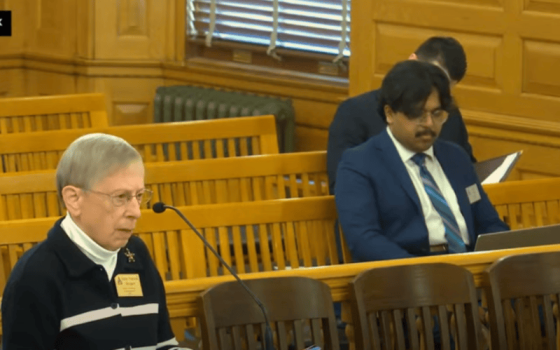VATICAN CITY -- Centuries-old discrimination against Gypsies can be overcome with initiatives to encourage education and integration coupled with a desire to reach out to others, a Vatican official said.
Archbishop Antonio Veglio, president of the Pontifical Council for Migrants and Travelers, said the church has been working to help create the structures and the environment that will "change the minds of people within and outside the church" regarding nomadic peoples known as Gypsies.
At a book fair specializing in social issues in Grottaferrata, south of Rome, Archbishop Veglio said April 15 that Gypsies have suffered isolation and persecution throughout history.
He said that within the pontifical council, the term Gypsy, sometimes a pejorative and offensive to nomadic people, is used because it can include nomadic peoples around the world. The terms Roma and Sinti refer more specifically to the nomadic populations in Europe, he explained.
Integration has been difficult because of rejection by local populations as well as fear of absorption and loss of identity on the part of the Gypsy people, Archbishop Veglio said.
Strenuous efforts on the part of civil and church authorities must continue so that Gypsies "consider themselves and are accepted as full members of the human family," he said.
In this process, he added, it is necessary to "safeguard the dignity of the Gypsy population, respect their collective identity and encourage initiatives for the defense of their rights.
For their part, Gypsies should strive to fulfill their duties and responsibilities to the surrounding society, he said.
The church's acceptance of Gypsies as people and as Christians and its efforts to promote their integration was outlined in a 2005 document that urges Christians to promote a culture of true acceptance and welcome that is able to appreciate the human values of others, the archbishop said.
Archbishop Veglio said that progress had been made, especially among young nomadic people, who understand the value of formal education, employment training and personal dignity as "tools of self-representation and emancipation."
He said experience shows that acceptance often requires people who can act as "integrators" and that the church was able to provide such people adept at mediating between mainstream and nomadic cultures.



